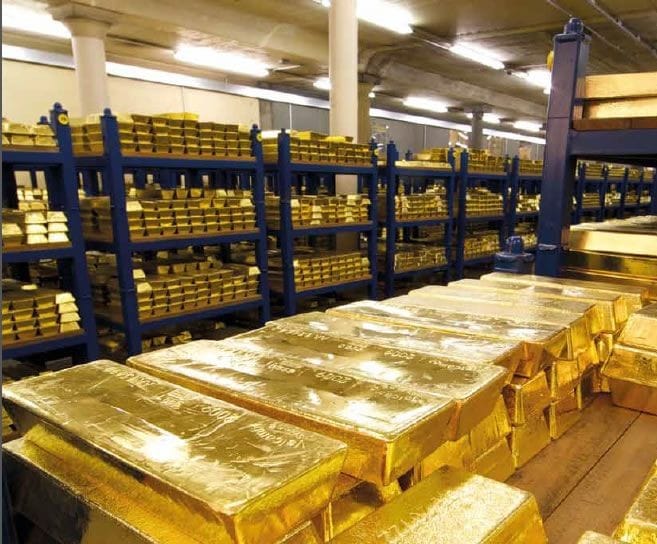Many Countries keep their gold in the vaults of the Bank of England or some such location and pay a fee for the privileges:
The Reserve Bank of India (RBI) has recently repatriated over 100 tonnes of gold from the United Kingdom to its vaults in India, marking a significant shift in its reserve management strategy. This is the first such move since 1991 when the country faced a severe financial crisis. Historically, the RBI has stored more than half of its gold reserves overseas, primarily with the Bank of England and the Bank of International Settlements, while keeping a third within the country.
This strategic shift is aimed at reducing the storage costs incurred by keeping gold abroad, particularly with the Bank of England. According to the RBI’s latest annual report, as of March 31, 2024, the central bank’s gold reserves stood at 822.10 tonnes, showing an increase from 794.63 tonnes the previous year.
The backdrop of this repatriation is tied to India’s financial history. In 1991, during a balance of payments crisis, the RBI was compelled to pledge 46.91 tonnes of gold with the Bank of England and the Bank of Japan to secure a crucial $400 million. More recently, in 2009, the RBI purchased 200 tonnes of gold from the International Monetary Fund (IMF) as part of a broader strategy to diversify its assets.
The recent buildup of gold reserves by the RBI has been steady, reflecting a deliberate policy to bolster its holdings as a hedge against global economic volatility. By the end of April 2024, gold’s share of India’s total foreign exchange reserves increased from 7.75% in December 2023 to 8.7%.
The repatriated gold is now securely stored in RBI’s vaults located in Mumbai’s Mint Road and in Nagpur, enhancing the central bank’s control over its gold assets.

The World Gold Council reports that global central banks hold about 17% of all the gold ever mined, with total reserves amounting to 36,699 metric tons as of the end of 2023.
Reports further said that similar quantity of gold may be headed into the country again in the next few months and that the transfer to locations within the country was for logistical reasons and diversified storage.






